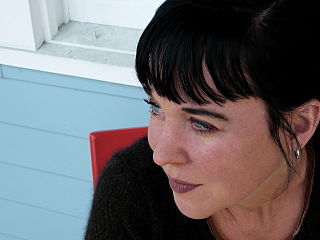A Quote by Lynn Flewelling
It would be lovely if it was all Right vs. Wrong, Good overcomes Evil - I think most Americans, going about their daily lives, fool themselves into thinking that that's how our little world works, but it just isn't so.
Related Quotes
Science fiction isn’t just thinking about the world out there. It’s also thinking about how that world might be—a particularly important exercise for those who are oppressed, because if they’re going to change the world we live in, they—and all of us—have to be able to think about a world that works differently.
Science fiction isn't just thinking about the world out there. It's also thinking about how that world might be - a particularly important exercise for those who are oppressed, because if they're going to change the world we live in, they - and all of us - have to be able to think about a world that works differently.
I was thinking about framing, and how so much of what we think about our lives and our personal histories revolves around how we frame it. The lens we see it through, or the way we tell our own stories. We mythologize ourselves. So I was thinking about Persephone's story, and how different it would be if you told it only from the perspective of Hades. Same story, but it would probably be unrecognizable. Demeter's would be about loss and devastation. Hades's would be about love.
The way we live our daily lives is what most effects the situation of the world. If we can change our daily lives, then we can change our governments and can change the world. Our president and governments are us. They reflect our lifestyle and our way of thinking. The way we hold a cup of tea, pick up the newspaper or even use toilet paper are directly related to peace.
It's a mistake to think that God has conflict with anything. He's everything. So the more close you are to God, how can you be in conflict with anybody? Conflict comes from ego, and from thinking, "I'm right and you're wrong." If I can reach the point where I understand that what is right for me may be different than what is right for you, that would be a good step. But most people don't reach that point, and so they fight about it.
CNN lives in a cocoon, as do all the major media, in which they tell themselves every day that everybody watching agrees with them and that they represent a majority of the people and the thinking in this country. They lie to themselves daily about who their audience is and how large it is and how loyal.
Most human beings spend their lives battling with opposing inner forces: what they think they should do versus what they are doing; how they feel about themselves versus how they are; whether they think they’re right and worthy or wrong and unworthy. The separate self is just the conglomeration of these opposing forces. When the self drops away, inner division drops away with it.
In college, in the early 1950s, I began to learn a little about how science works, the secrets of its great success, how rigorous the standards of evidence must be if we are really to know something is true, how many false starts and dead ends have plagued human thinking, how our biases can colour our interpretation of evidence, and how often belief systems widely held and supported by the political, religious and academic hierarchies turn out to be not just slightly in error, but grotesquely wrong.
The problem, of course, was that people did not seem to understand the difference between right and wrong. They needed to be reminded about this, because if you left it to them to work out for themselves, they would never bother. They would just find out what was best for them, and then they would call that the right thing. That's how most people thought.
History tells us more than we want to know about what is wrong with man, and we can hardly turn a page in the daily press without learning the specific time, place, and name of evil. But perhaps the most pervasive evil of all rarely appears in the news. This evil, the waste of human potential, is particularly painful to recognize for it strikes our parents and children, our friends and brothers, ourselves.


































